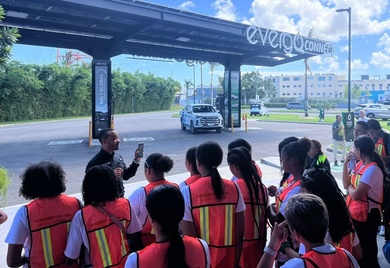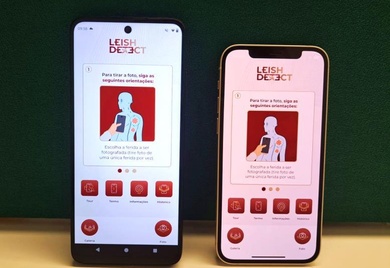Millennial women: How to get them to make better financial decisions?

Photo by Bruce Mars / Pexels
Both women and millennials are reported to have some of the highest levels of interest in socially responsible investing, but they may not be as actively engaged in the field as we think as decision makers. As numbers demonstrate, 70% of women are interested in impact investing, and many reports show that women categorically say they want both a financial and social return on their investments.
If we narrow our focus on young women, Morgan Stanley data show that 86% of millennials (broadly defined as those who were born between 1980s and 2000) are interested in socially responsible investing. Yet, looking at the intersection between these two populations, we find that female millennials are less likely to make investment decisions for themselves when compared to previous generations. In fact, 61% of millennial women surveyed by UBS leave investment decisions to their husbands, more than any other recent generation.
The millennial conundrum
Why are millennial women—more educated, more successful and more outspoken than ever—leaving major decisions about money to someone else? Why are younger women perpetuating the status quo rather than transforming it? Do data from Latin America and the Caribbean support these UBS data about millennial women with similar trends, or is this an US and European phenomenon only?
Millennial women not making their own investment decisions matter for three main economic reasons:
- They are likely missing opportunities to support impact investing vehicles. When they yield their financial decisions to their husbands, women may not be strongly investing in local or global issues they care about, whether that’s healthcare, education, conversation, microfinance, gender equality, sustainable agriculture, community development, and the like. If women aren’t at the wheel of their investments, meaningful social change may not be fully unleashed.
- They may not be neither maximizing their own wealth creation nor creating a realistic plan for their future. Many women’s life events and situations introduce barriers to creating wealth. A 26% pay gap in the LAC region, taking careers breaks, and working flexibly can also have a detrimental impact on women’s wealth creation, and their investment strategies benefit from taking these factors into account. On average, women tend to live longer than men in LAC by 6.3 years, so their wealth-planning needs must often span a lengthier time horizon. These women would benefit from investment strategies that reflect these realities.
- A massive wealth transfer is coming, and Latina women should be prepared. Globally, women will inherit $28.7 trillion in intergenerational wealth over the next 40 years. We know millennial women are comfortable investing in other women philanthropically, but the question is: how to transition them from their comfort zone in philanthropy to investing?
So, how do we increase the knowledge, confidence and number of active female millennial investors in the LAC region, and guide them to socially responsible investment options?
You may also like:
- Do you speak the universal language of the Sustainable Development Goals?
- Maximizing the impact of sustainable development investing
- What kind of support from the public sector do Fintechs need?
The roadmap to financial empowerment
- Offer them better, more tailored financial advice, ideally from highly trained female (and male!) financial advisors in LAC, who reinforce that social impact—and return—are both possible for investments. Good financial advice can help women overcome some of their wealth challenges, reinforce their financial confidence, and better assess risk. Jacki Zehner, from Women Moving Millions, notes that women respond particularly well to a one-on-one approach to financial advice focused on confidence-building.
- Create investing women’s bootcamps in LAC built around women’s current networks. Create relationship-based, community building models that get women out of a “teaching” format and into dialogue with each other. These groups can help millennial women learn from their peers about how they became investors.
- Align products with potential female investors. There is a growing number of mutual funds and ETFs that are democratizing access to impact and gender-lens investing, although the offer in LAC is still limited. Much can be learned from the accessibility of these liquid, relatively low-fee and low minimum vehicles as on-ramps for millions of investors (both men and women) supportive of gender equality globally.
- Help investors make the leap from single products to portfolios. There are increasingly more fully diversified gender lens portfolios to address gender-based violence, women’s chronic under-representation in leadership and women’s health care needs.
- Create more research on female millennials’ distinct needs and opinions in LAC to help guide the creation of investment vehicles and strategies to develop female investors in the region. Data are incredibly scarce in LAC on the topic, and asset managers, development banks, financial advisors, and women investors, among others, could take a more active role in collecting these data to advance the field.■
Female millennials are pivotal actors in the larger gender lens investing (GLI) conversation that is now entering LAC. To find out more about the challenges and opportunities that GLI presents in LAC, please see IDB Invest’s recently-launched paper “Gender Lens Investing: How Finance Can Accelerate Gender Equality in Latin America and the Caribbean”, a first-of-a-kind report highlighting this growing trend in the region.
LIKE WHAT YOU JUST READ?
Subscribe to our mailing list to stay informed on the latest IDB Invest news, blog posts, upcoming events, and to learn more about specific areas of interest.
Subscribe



